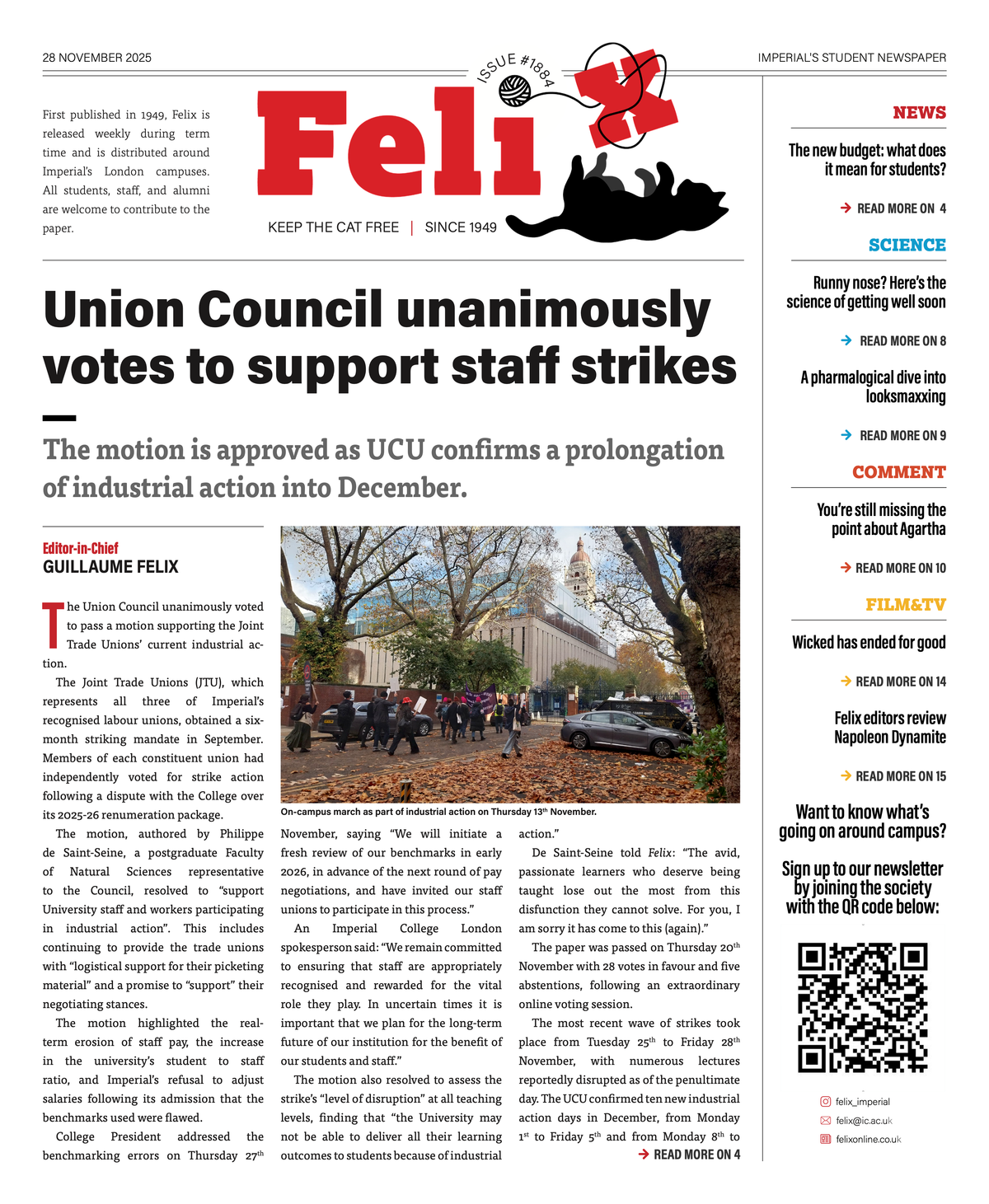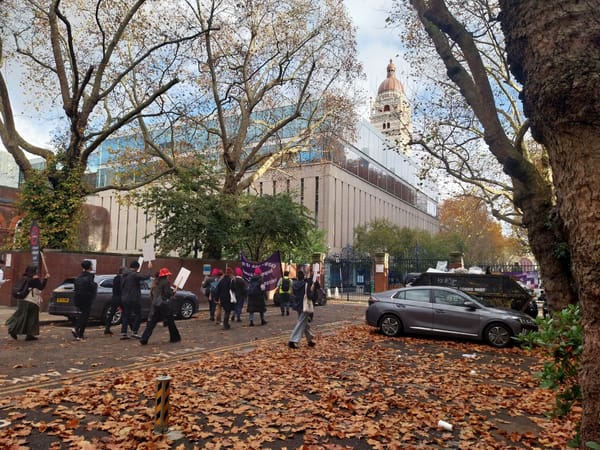OT Interviews: Emina Hogas, Deputy President for Education
Starting her second year in the role, the biomedical engineer discusses first year takeaways and new priorities.
"I would say I started anew, but one month into the term, I already need another break,” Emina says as she reflects on the beginning of her second year as Deputy President for Education. “But I’m pretty sure every student feels the same.”
As she speaks about her plans for the new year, you can hear a hint of an American accent. Emina is originally Romanian, but she was brought up in the United States for some time and began her academic career in the Netherlands.
“I think one of the main factors that made me switch from the Netherlands to the UK was the presence of the Union, funnily enough,” she says, adding that she missed societies that catered to a diverse student body. “It was a cute little full circle moment.”
She’s now on her sixth year at Imperial, where she’s previously completed a bachelor’s in Biology, master’s in Engineering for Biomedicine, and her first year as Deputy President for Education.
“The first year passes a lot faster than you think,” she reflects. “Because in your first year, you’re kind of like, ‘I want people to think that I’m actually working,’ so, I’m going to be doing 10 different things at once.”
Last year, one of Emina’s big focuses was restoring student representative network, which had never truly recovered from COVID.
When people ask her why she’s back for a second year, she feigns exhaustion and suggests the role is an addictive trap: “They got me! It’s on for another year.”
Staying in her role for an additional year allows her to finalise projects from last year as well as start working on a new set of priorities.
“It was just making sure that I had that extra time to tie everything out for my previous year and then taking the time to lay some seeds in my second year for my predecessors to take on,” she says.
One of the priorities she’s bringing in from last year is a focus on postgraduate students, an issue which came into the forefront with the Democracy Review last year.
“We now have a full-time member of staff as a result of me being very annoying about postgrads,” she says with a laugh.
She’s also been working on artificial intelligence (AI) literacy, working with the university to put resources out to help students understand how to use AI safely and productively.
“I would hate to be on academic misconduct panels where students [...] end up getting caught for plagiarism when it was something that could have easily been avoided when it came to the use of generative AI,” she explains.
Her other main focuses include feedback literacy for students as well as renaming and restructuring the personal tutoring scheme.
Heading into this new year, she’s being more purposeful about what she does in each day.
“My main takeaway is that you decide your business as usual,” she says. “It’s learning how to be intentional with your time and the spaces you’re in.”
One the biggest benefits of being Deputy President of Education is that she can sit at lots of different tables, but this year she hopes to prioritise the tables where she can make the most valuable contribution.
When I asked her why she does it, she told me it’s for the delayed rewards.
“I do it for the experience I’m hoping to improve,” she explains. “Not in a year’s time, I likely won’t reap the benefits of what I’ve been doing, but it’s just knowing that after I’ve left, I’ve been able to make a change, and I’ve made things a bit more efficient.”










